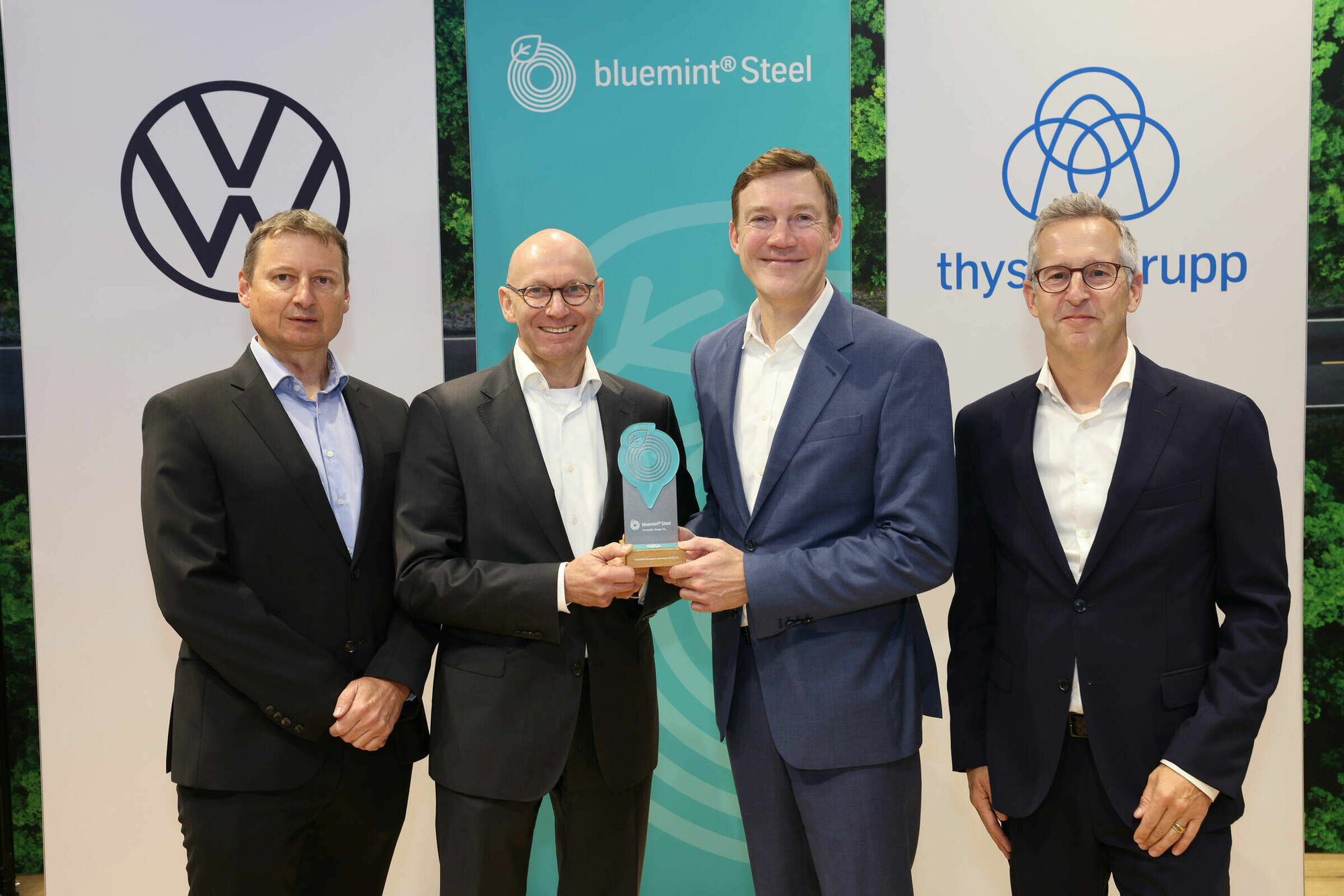Volkswagen Group and Thyssenkrupp Steel have signed a memorandum of understanding (MoU) for the planned supply of low-carbon steel from Thyssenkrupp’s future direct reduction plant.
Thyssenkrupp’s direct reduction plant, scheduled to be operational by 2027, will run on hydrogen and green electricity, drastically reducing its carbon footprint. Initially, the plant will use natural gas as a reducing agent, transitioning gradually to hydrogen. The resulting product, bluemint® Steel, will be certified to meet recognised standards and could qualify for the LESS Label A, provided hydrogen used in production is sourced entirely from renewables. This classification, developed by the German Steel Association and supported by Germany’s Federal Ministry for Economic Affairs and Climate Action, gives a comprehensive view of the product’s climate impacts, documenting its near-emission-free production.
“Decarbonising supply chains is a decisive factor for the Volkswagen Group on the road to carbon neutrality. We want to achieve this goal by 2050 at the latest, and using low-carbon steel is an important step in making supply chains at Volkswagen Group even more environmentally friendly going forward. This MoU with Thyssenkrupp is an important building block in our strategic focus on the use of low-carbon steel,” said Dirk Große-Loheide, Member of the Board of Management of the Volkswagen Brand responsible for Procurement and Member of Volkswagen AG’s Extended Executive Committee.
Volkswagen Group stands to benefit from this innovative process, as 15 to 20 percent of an electric vehicle’s emissions come from the steel used. The decarbonisation effort will allow the production of a full range of products in premium quality, following standard specifications. Supplies of low-carbon steel are expected to begin in 2028 and will increase incrementally.
Dennis Grimm, Spokesman of the Executive Board of Thyssenkrupp Steel said, “Signing this memorandum of understanding marks an important step on our path to decarbonising key industrial processes in Germany. Our long-standing partnership with Volkswagen Group demonstrates that, alongside our technical development work, we can also collaborate in making great strides toward a sustainable future.”
This collaboration between Volkswagen and Thyssenkrupp also focuses on electromobility, including economical lightweight solutions for durable vehicle structures and electrical steel for efficient electric drive systems. Steel plays a critical role in the mobility transition, not only as a material for generators and electric motors but also as the preferred material for bodies and structural components of electric vehicles. Given the larger battery units in electric vehicles, more steel is required compared to combustion vehicles, further enhancing the importance of this partnership.
